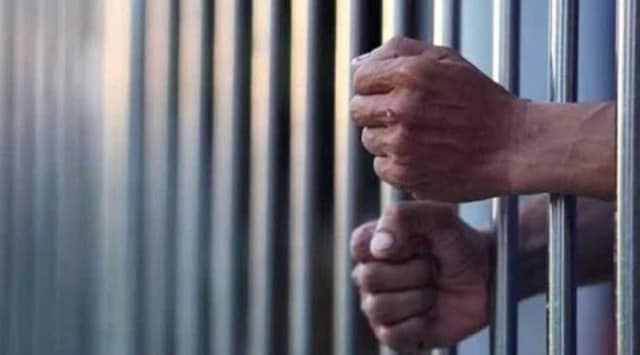- India
- International
Lack of intervention for mental health of Maharashtra prison inmates matter of concern, say experts
Enacted three years ago, the Mental Healthcare Act, 2017, has provisions for all medical officers in prisons to be trained to provide basic and emergency mental healthcare. The provisions of the Act, activists say, are yet to be followed regularly in prisons.
 Many shareholders, in whose name mutations were endorsed, were not even residents of the village and have not been traced during the vigilance inquiry.
Many shareholders, in whose name mutations were endorsed, were not even residents of the village and have not been traced during the vigilance inquiry.AT LEAST four inmates have died by suicide in Maharashtra prisons since May this year. The figure, reported over five months, also equals the number of suicides for the entire year in state prisons, according to the Prison Statistics of India, 2019.
In the latest case, a 32-year-old convict, who died by suicide in Nashik jail, was suspected to have swallowed a note that was found in his abdomen during post-mortem. The note alleged harassment by five prison officials. The matter is currently under investigation by the police while an internal inquiry by the prison department is also on in the case.
In other cases, prison rights experts say, lack of interventions for the mental health of the custodial population is a matter of concern.
Enacted three years ago, the Mental Healthcare Act, 2017, has provisions for all medical officers in prisons to be trained to provide basic and emergency mental healthcare. The provisions of the Act, activists say, are yet to be followed regularly in prisons.
Among the steps suggested by the Commonwealth Human Rights Initiative (CHRI), in a recent note on mental health and prisons, is the training of prison staff on the identification of early signs of mental illness among inmates.

What 2017 legislation says
The Mental Healthcare Act, 2017, is the latest legislation with specific provisions to deal with mental health in prisons. Apart from requiring all medical officers in jails to be trained to provide basic and emergency mental healthcare, it also requires them to submit quarterly reports to the Mental Health Review Board. The Act also requires the Board members to visit and inspect jails. It also requires the government to set up mental health establishments in the medical unit of at least one prison in each state. Activists say that most of these provisions are not implemented.
Sabika Abbas, a programme officer with CHRI, says that while jail staff is expected to intervene, they are not equipped to deal with such cases. “There is a lack of understanding and execution of these provisions for mental health interventions in prison. They require specialised help from experts but with public hospitals themselves burdened, prisons do not get adequate attention,” she said.
In Maharashtra, there are just 73 medical staff against a sanctioned 100 posts, while among correctional staff, including psychiatrists and psychologists, the vacancies are higher — 117 of the sanctioned 187 are lying vacant.
In 2017, a committee set up to recommend prison reforms had suggested the appointment of counsellors and organising weekly OPD clinics, with experts including psychiatric social workers, in jails. While a circular was issued then by the Directorate of Health Services and was initially followed, it was not sustained.
“There is a definite need for the appointment of counsellors at least in central prisons where there are chances of overcrowding and other issues. Also, given that mental health services are poor even for the general population, long-term prisoners could also be trained for peer-counselling and prison staff can be sensitised,” Vijay Raghavan, project director, Prayas, a field action project of Tata Institute of Social Sciences, said. Raghavan was also a part of the prison reform committee. Other factors, including anxiety about trials, being cut off from family and children, especially for women, also lead to a steady deterioration of mental health among inmates.
“These factors are only given attention when there is an extreme effect on a person. It is then that the inmate is taken to the hospital for psychiatric treatment. For the daily impact that the custodial space causes, there are no particular steps taken. Simple steps like keeping the inmate lodged in a jail in a city close to his family, regular video calls — which were not allowed before the lockdown — so that he does not feel abandoned, a good library or access to recreational activities, can go a long way in helping inmates deal with incarceration,” said Wahid Shaikh, who spent over nine years as an undertrial in the 2006 Mumbai train blasts case before being acquitted of all charges. Shaikh now advocates prison reforms and prisoners’ rights.
Apr 27: Latest News
- 01
- 02
- 03
- 04
- 05








































